Canada has an urgent need for qualified physicians in all aspects of health care.
According to a national survey published in the Canadian Medical Association Journal, more than one in five Canadians (approximately 6.5 million people) do not have a family physician or nurse practitioner they see regularly, while a 2025 Health Canada report says Canada is currently short 22,823 family physicians. The number of physicians gearing up for retirement will further tax Canada’s already stressed health-care resources: A 2024 survey from the Ontario Medical Association shows that 40 percent of physicians are considering retiring in the next five years alone.
The good news is that many of Canada’s medical schools are internationally recognized for their academic training and cutting-edge research opportunities—and they’re welcoming qualified students, particularly those with strong applications which include the best pre-med programs. Learners studying in Canadian medical schools get opportunities to work in various specialties and health-care settings, from large urban hospitals to remote rural clinics helping underserved communities.
Canada is also ushering forward the opening of new medical schools coast to coast: Dalhousie University’s Cape Breton campus welcomed its first cohort of 30 future doctors in August 2025. Toronto Metropolitan University in Ontario is accepting applicants for its inaugural August 2026 intake, as are University of Prince Edward Island in PEI, with a cohort of 20 Islanders to be taught by Memorial University Faculty of Medicine Learners, and Simon Fraser University, launching with an inaugural cohort of 48 students.
Plus, demand for doctors is projected to keep growing, ensuring long-term job stability and attractive earning potential for new graduates. The median annual wage for general practitioners and family physicians in Canada is $232,227 nationally, according to Canada’s Job Bank, with senior practitioners and specialists earning upwards of $350-500K each year. On CourseCompare’s ranking of the highest paying jobs in Canada, anesthesiologists (and other specialized medical practitioners) top the list.
CourseCompare conducted extensive research comparing clinical experience, Canadian Resident Matching Service (CaRMS) match rates and average Medical College Admission Test (MCAT) scores, student to teacher ratios, research and innovation achievements, and reputation among students domestically and internationally, to rank the best medical schools in Canada of 2026.
CourseCompare’s annual school rankings are determined using a process that considers several core metrics and principles. Read more about our methodology here.
Considering applying internationally? Read our ranking of the best Caribbean medical schools for Canadians.
University of Toronto
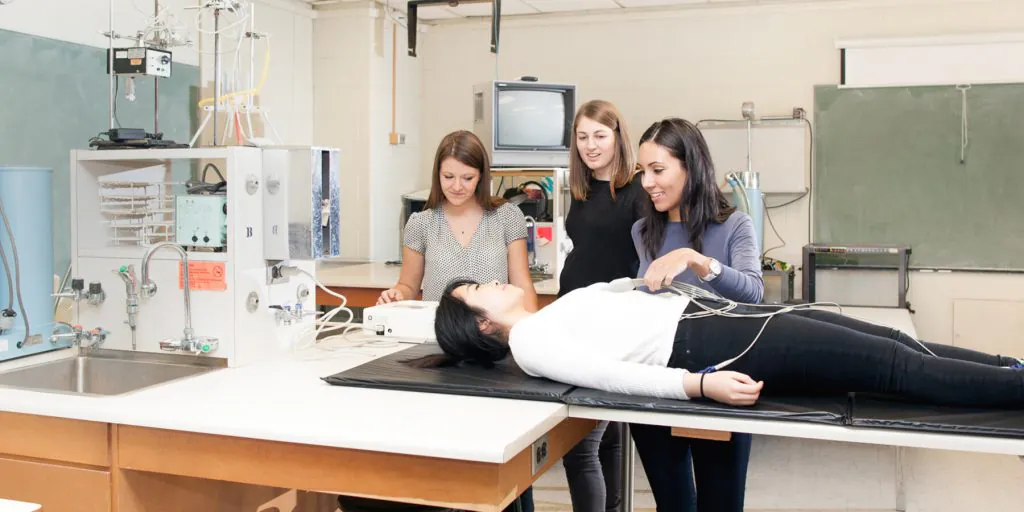
The University of Toronto’s Temerty Faculty of Medicine emerged as a leader in medical research starting in the 1980s. Today, many of its faculty members continue to receive national and international recognition for their work, counting several Canada Research Chairs and recipients of the Order of Canada among its professors. As one of the largest medical schools in Canada, the faculty hosts several research institutes and centers, such as the Lunenfeld-Tanenbaum Research Institute and the McLaughlin Centre, which helps facilitate and promote interdisciplinary research.
What You’ll Learn
The four-year MD program focuses on foundation learning in the first half, and clinical rotations across U of T’s affiliated teaching hospitals in years three and four. Students follow a cohort of patients over time to get a better sense of continuity of care, and have opportunities for research electives. As part of the Faculty’s Family Medicine Longitudinal Experience, second-year med students get early exposure to family medicine with opportunities to observe and participate in clinical care in a family practice setting.
The faculty offers one of largest PGME programs in Canada, with more than 70 accredited residency programs across different specialties. Fellowships last one to three years, with opportunities to engage in global health initiatives or transition into academic medicine.
The five-year combined MD/MBA is offered in partnership with the Rotman School of Management and equips medical students for leadership roles in healthcare administration, policy, and business. The program also boasts access to a large professional network through both the medical and business schools. The highly competitive MD/PhD dual degree typically takes seven to eight years to complete, providing extensive research in clinical and research environments.
Average MCAT Score: U of T does not publish an average MCAT score, but requires its med students to earn at least 125 in each section, with an allowance of 124 in one section, for a minimum total of 499.
CaRMS Match Rate: 92%
What Sets the Medical School Apart: The medical program at U of T is internationally recognized for its success in translating research into clinical practice, finding innovative solutions to pressing health issues. The faculty collaborates with hospitals and research organizations to ensure that new findings are implemented in patient care. The University is also a leader in artificial intelligence in health care, integrating AI in medical training and research to advance diagnostics, treatment and patient care.
Locations
Toronto and Mississauga, Ontario
McGill University

Founded in 1829, McGill University’s Faculty of Medicine and Health Sciences was the first faculty of medicine in Canada and is currently the leading medical research university nationally. The faculty is renowned for its excellence in the health sciences worldwide, excelling in areas such as neuroscience, cancer research, genomics, and public health.
What You’ll Learn
The Faculty of Medicine offers a four-year undergraduate medical program leading to the MDCM (Medicinæ Doctorem et Chirurgiæ Magistrum), which is offered in English at the Montreal campus and French at the Outaouais Campus in Gatineau. The MDCM program emphasizes problem-based learning, interdisciplinary collaboration, and early clinical exposure, providing students experience with real-world medical practice.
The Post-Graduate Medical Education (PGME) program provides advanced training to medical graduates pursuing specialized and subspecialized fields in health care with residency and fellowship opportunities. After completing a residency (which can last two to seven years), physicians can pursue further specialization through a fellowship program, which typically runs one to three years.
McGill also offers a number of joint programs, including the MDCM-Oral and Maxillofacial Surgery degree, MDCM-MBA, and MDCM-PhD. In the dual-degree MDCM-PhD, which takes seven to eight years to complete, students undergo the full MDCM curriculum while also undertaking an original research project in their chosen area (e.g., biomedical sciences, public health, genomics, cancer biology, neuroscience, or epidemiology).
Average MCAT Score: Not required
CaRMS Match Rate: 91%
What Sets the Medical School Apart: With strong international ties, McGill Global Health Programs connect students to research and clinical opportunities around the world, adding a global perspective to their training. Locally, the University has four major urban teaching sites for students, including the McGill University Health Centre, considered one of the most comprehensive university health centres in North America, as well as close affiliations with leading research centres such as the Montreal Neurological Institute. A state-of-the-art simulation centre allows students the experience of interviewing mock patients and practicing intricate surgical procedures.
Although the primary language of instruction is English at the Montreal campus, students interact with both English- and French-speaking patients throughout their training for a unique bilingual training experience.
Locations
Montreal and Gatineau, Quebec
University of British Columbia (UBC)

UBC’s Faculty of Medicine was founded in 1945 and pioneered the “distributed model of medical education,” which allows students to train in various rural and remote areas throughout the province and glean a diverse range of clinical experience. It has a strong research focus in areas such as translational medicine, population health and health services research, and in recent years has added Indigenous health and cultural safety as a key priority.
What You’ll Learn
Students in the four-year MD program begin learning essential clinical skills right from the start, and are introduced to family medicine and patient care in the first semester. Clinical rotations occur in years two and three, with a focus on elective rotations and preparation for residency in year four. Following completion of the MD program, graduates can enter residency training in various specialties and subspecialities.
The MD/PhD dual degree program typically runs up to eight years and combines medical training with advanced research education, culminating in a doctoral dissertation. The faculty offers 14 PhD programs covering biomedical, clinical and public health fields.
Average MCAT Score: 514
CaRMS Match Rate: 94%
What Sets the Medical School Apart: The Faculty is known for its affiliation with several leading research institutes and centres across health disciplines that are helping drive research and innovation. They count all seven of B.C.’s health authorities as partners, as well as the BC Cancer Research Centre, Centre for Brain Health, UBC Centre for Heart and Lung Innovation, and Michael Smith Laboratories, which focus on biotechnology and genomics research.
UBC also partners with the Canadian Institutes of Health Research and other national organizations for funding and collaboration. In 2024, the Faculty received more than $18-million in federal grants allocated for projects targeting cancer treatments, diabetes and infectious diseases.
Locations
Vancouver, Victoria, Okanagan, Prince George
McMaster University

McMaster University’s School of Medicine, established in 1965, was renamed the Michael G. DeGroote School of Medicine in 2004. It offers programs in undergraduate, postgraduate, and graduate medical education, with an accelerated three-year MD program. The faculty also offers opportunities for medical students to participate in global health electives to glean experience in international settings.
What You’ll Learn
McMaster offers an accelerated three-year MD program, without summer breaks, allowing students the opportunity to complete their academic training and enter residency sooner. Students interact with patients and healthcare professionals from the onset and the focus is on group work and peer feedback.
The Post-Graduate Medical Education (PGME) program offers more than 60 residency programs across a wide range of disciplines, which can take from two to seven years to complete. There is an emphasis on competency-based medical education, rather than completion of tasks within a set timeframe. Residents are encouraged to participate in research projects and can access support through the Department of Health Research Methods, Evidence, and Impact (HEI).
After residency, physicians can enrol in subspecialty or research-focused fellowships, which run between one to three years.
Average MCAT Score: McMaster does not publish an average MCAT score. Its focus is on the MCAT CARS score, where students are required to achieve at least 123. The class of 2028 achieved a mean score of 129.
CaRMS Match Rate: 95%
What Sets the Medical School Apart: McMaster is one of two medical programs in Canada with an accelerated three-year MD program. Shifting away from traditional lecture-based training, McMaster was also the first medical school in Canada to adopt the Problem-Based Learning (PBL) curriculum, which focuses on self-directed learning. By engaging students in small group discussions, where they analyze real-life medical cases and learn collaboratively, the program was designed to promote critical thinking, problem-solving and teamwork. It is also lauded for its comprehensive wellness program that includes mental health support, physical wellness initiatives, and resources for stress management.
The medical program focuses on family medicine and pediatrics, as well as internal and emergency medicine. McMaster is home to world-class research institutes (e.g., Population Health Research Institute, the Farncombe Family Digestive Health Research Institute), with a strong focus on developing evidence-based medicine.
Locations
Hamilton, Waterloo, and Niagara, Ontario
University of Alberta

Established in 1908, the University of Alberta Faculty of Medicine & Dentistry is known for its focus on research and community service, and its faculty members are actively engaged in public health initiatives and medical research.
What You’ll Learn
The four-year MD program focuses first on foundational coursework and clinical training, with some specialty rotations beginning in year two. More extensive clinical rotations across specialties begin in year three. Students are connected with faculty mentors throughout their medical education for support.
The MD and STIR (Special Training in Research) program is for students who wish to participate in research above and beyond what is offered within the MD Program. In the MD/STIR, students join a research team and directly engage in biomedical research over 24 weeks.
Those in the five-year MD/MBA get medical training in combination with business management to equip them with skills needed for leadership roles in health care.
The MD/PhD, which typically takes seven to eight years, allows students to obtain both advanced degrees, integrating medical training with advanced research education. During the PhD phase, students partake in original research related to advancements in the medical or health sciences.
Average MCAT Score: 512
CaRMS Match Rate: 96%
What Sets the Medical School Apart: The faculty prioritizes training related to family medicine, internal medicine, and Indigenous health, to ensure students can provide culturally competent care and understand the health issues faced by Indigenous populations. It has partnerships with the Alberta Diabetes Institute, the Alberta Transplant Institute, and the Cancer Research Institute of Northern Alberta.
Locations
Edmonton and Grande Prairie, Alberta
University of Ottawa

Located in Canada’s capital city, University of Ottawa’s Faculty of Medicine is close to several national health organizations and is the only medical school to offer its curriculum in both French and English. The faculty puts a significant focus on global health and international medical education, offering students opportunities for global health electives and clinical placements in international settings. It also integrates innovative teaching methods into its curriculum, including the use of simulation-based learning and advanced technologies to enhance students’ clinical skills.
What You’ll Learn
In the first two years of the MD program, students engage in problem-based learning (PBL) and early clinical experiences through community service and simulations. Clinical rotations start in year two, progressing to more advanced rotations in specialty areas by year four. These more advanced rotations give students a deeper knowledge in subspecialties while still honing their diagnostic, clinical and procedural skills.
With the MD/PhD program, the first two years are spent on clinical training, followed by approximately three to four years dedicated to completing the PhD research component. Students then return for their final year of clinical training.
Average MCAT Score: Not Required
CaRMS Match Rate: 95%
What Sets the Medical School Apart: The University of Ottawa has the largest bilingual medical faculty in Canada. Its close proximity to major health organizations such as Health Canada provides opportunities for students in research collaborations, policy and healthcare innovation at a national level, and global health is a key focus. Its proximity to the Canadian Institutes of Health Research also means a close collaboration on research and medical innovation initiatives.
Locations
Ottawa, Ontario
Queen's University
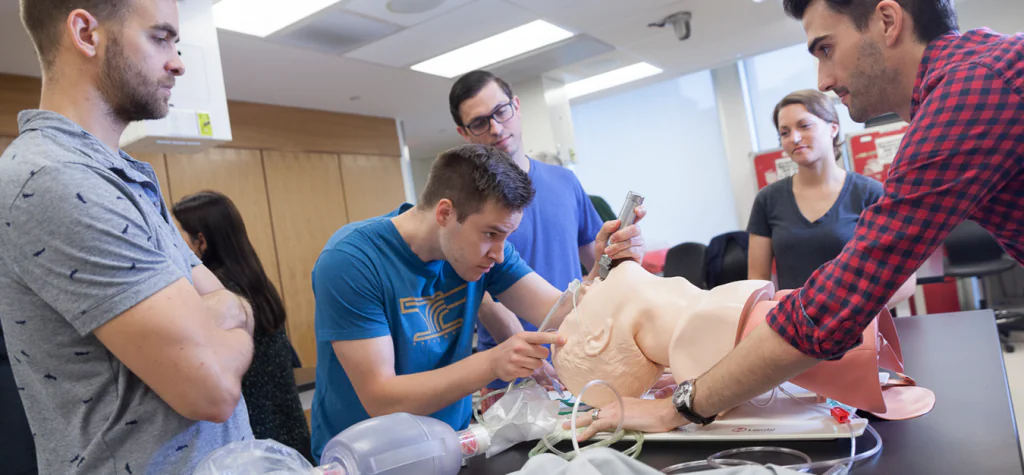
Established in 1854, Queen’s University’s School of Medicine is among the oldest medical schools in Canada and has a long-standing reputation for academic excellence and opportunities for hands-on clinical and research experience. It is also known to be one of the most competitive med schools because of its rigorous admissions process (including requiring applicants to have high MCAT scores, a strong academic record, and a commitment to social responsibility through volunteer experiences).
What You’ll Learn
The School of Medicine offers a four-year Doctor of Medicine (MD) program, progressing from foundational knowledge to clinical experiences starting in first year. The curriculum incorporates problem-based learning (PBL), where students work in small groups to solve clinical cases, promoting active learning and critical thinking.
MD students can apply to the faculty’s Post-Graduate Medical Education program, which offers residencies (2-5 years in duration) across various specialities.
The faculty’s MD/PhD program, which typically runs seven to eight years, combines the medical curriculum with advanced research training. The program provides students flexibility in completing both degrees and focuses on translational research, which bridges the gap between laboratory findings and clinical applications.
Average MCAT Score: 513
CaRMS Match Rate: 96%
What Sets the Medical School Apart: The MD program is focused on family and community health. The faculty also encourages active collaboration with other faculties, such as engineering and health sciences, for a well-rounded understanding of healthcare and innovation. Queen’s medical students engage in community service and volunteer work – and given its location in a smaller Ontario city, students get exposure to rural and urban settings.
Locations
Kingston, Ontario
Université de Montréal

One of the largest medical schools in Canada, Université de Montréal (U de M) offers a wide range of programs and specialities and recently added a new state-of-the-art teaching pavilion. While curriculums are primarily in French, there are opportunities for bilingual students and collaborations with English-speaking institutions (i.e., McGill and Ottawa), for those interested in working in both French and English medical environments.
What You’ll Learn
The MD program teaches foundational medical sciences, clinical skills, and patient-centered care. Depending on your undergraduate studies, you might do a preparatory year, or you might go straight into the pre-clerkship phase (two years), followed by the clerkship (two years). The two pre-clerkship years, the most theory-intensive part of the program, are held primarily on campus. The two clerkship years are largely dedicated to hospital internships.
As of 2024, the Faculty of Medicine has updated its program to address societal challenges and emerging fields (such as climate health, digital health, artificial intelligence). The changes emphasize innovative teaching methods to foster compassionate care and leadership skills.
With more than 70 residency programs across a wide range of medical specialties and subspecialties, including research emphases in fields like neuroscience and cancer, this faculty offers one of the most comprehensive programs in the country.
Average MCAT Score: Not required
CaRMS Match Rate: 90%
What Sets the Medical School Apart: U de M has Quebec’s largest teaching hospital network, including 17 institutions, many of which are leaders in research, teaching, and healthcare. It’s known for integrating digital health technologies into medical training and research, including using artificial intelligence (AI) in diagnostics and treatment planning, digital health platforms, and telemedicine. U de M is also home to a state of the art simulation centre, the Clinical Attitudes and Skills Learning Center (CAAHC), which enhances care effectiveness and safety.
Locations
Montreal and Trois-Rivieres, Quebec
Dalhousie University

Opened in 1868, Dalhousie University’s Faculty of Medicine is the oldest medical school in the Maritime provinces, giving students opportunities to get valuable experience working in diverse clinical settings – from large teaching hospitals to smaller, underserved communities. The program has a particular focus on training students to work in family medicine as well as serving rural/underserved communities.
Dalhousie fosters an interdisciplinary collaboration between healthcare fields taught at the school, with its medical students frequently collaborating with those in dentistry, nursing, and other health profession programs.
What You’ll Learn
The MD program is divided into three sections: Med 1 (first year); Med 2 (second year); and clerkship (third and fourth years). The first two years focus on the human anatomy and systems of the body, as well as case-based learning. Years three and four provide opportunities in clinical settings, with more than 100 teaching sites in Maritime Canada.
For residency training, Dalhousie’s medical school offers accredited clinical training for more than 600 medical residents and 50 Royal College specialty programs (including 24 subspecialties).
Average MCAT Score: 505
CaRMS Match Rate: 96.6%
What Sets the Medical School Apart: First-year students are paired with patients under the supervision of medical professionals starting their first week so they can get a first-hand look at patient care in practice, including how to take patient histories and perform basic physical exams and how to develop communication skills with patients and practitioners. Opportunities for real-life clinical experience continue throughout the duration of the program.
With affiliations with several research centres (e.g., The Brain Repair Centre, the IWK Health Centre, Atlantic Cancer Research Institute), medical students also get research opportunities that foster innovation, collaboration and learning in various areas of health care and medical science.
Locations
Halifax and Cape Breton, Nova Scotia; Saint John, New Brunswick
Western University
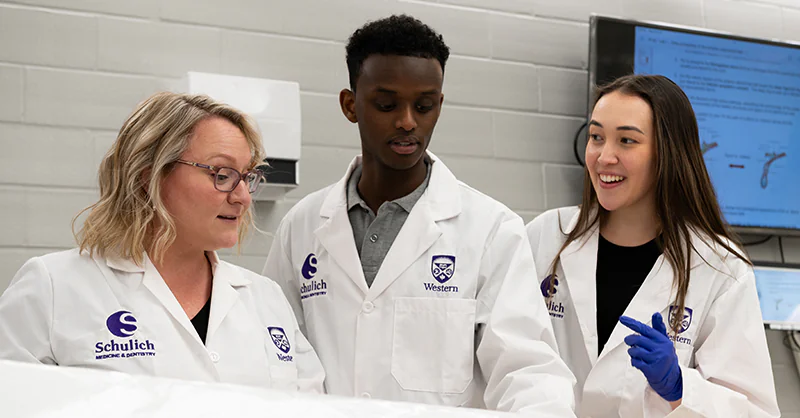
Since its inception in 1881, Western University’s Schulich School of Medicine & Dentistry has evolved significantly over the last 143 years, earning a reputation for offering robust interprofessional medical training and research opportunities in state-of-the-art facilities. In 2008, it launched a second satellite program in Windsor, ON, offering smaller classes and a community-based approach to learning that emphasizes understanding and responding to local health issues. The curriculum, however, is the same at both campuses.
What You’ll Learn
The four-year MD program is currently transitioning its curriculum towards a competency-based, active learning medical education model. This renewed curriculum will support personal and team adaptive learning along with a new assessment model.
The PGME program offers a variety of residency training programs across specialties, including family medicine, internal medicine, pediatrics, surgery etc.
The seven-year MD/PhD program offers two models, with an option to start with undergraduate medical training or first with three years of research.
Average MCAT Score: 513
CaRMS Match Rate: 94%
What Sets the Medical School Apart: Over the years, the Schulich School has developed a strong research infrastructure around neuroscience, cancer, cardiovascular care, infectious disease, immunology and others. This has attracted funding and facilitated major research collaborations with Robarts Research Institute and London Health Sciences Centre. This focus on research has led to numerous London-based contributions to medical science and practice, such as personalized and more targeted treatments for breast and prostate cancer patients.
Locations
London and Windsor, Ontario
University of Calgary
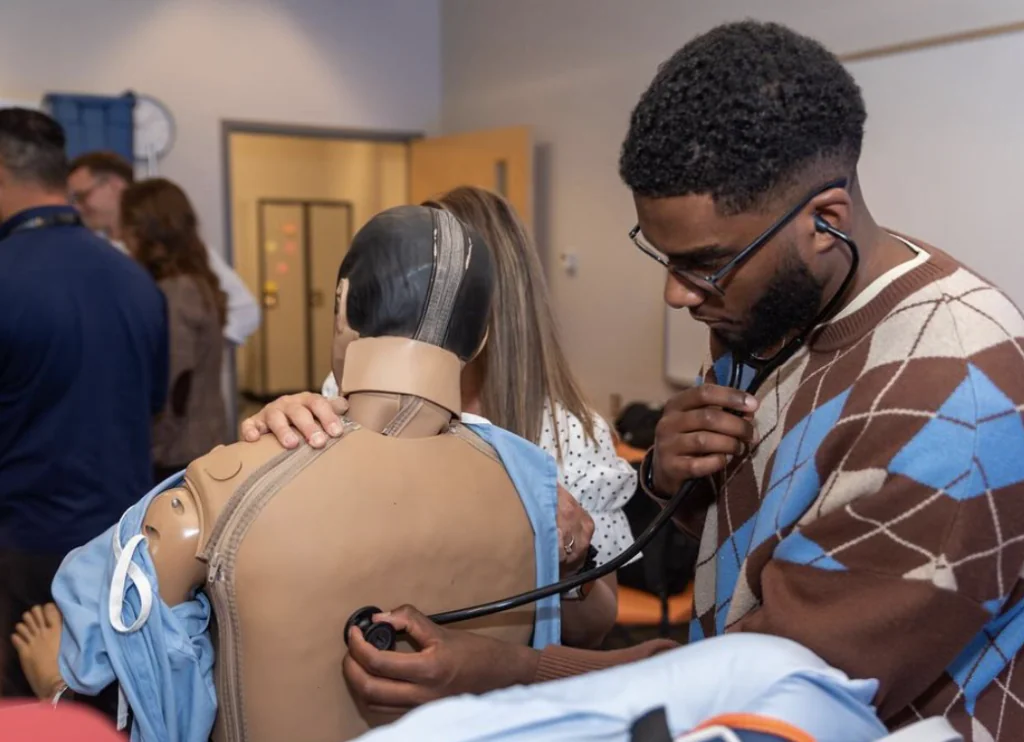
Established in 1967, University of Calgary’s Cumming School of Medicine has a strong focus on interprofessional education, allowing medical students to collaborate with students from nursing, pharmacy, and other health disciplines. It also uses a Competency-Based Medical Education model that emphasizes active learning and specific competency goals for students throughout the curriculum.
What You’ll Learn
The three-year MD program provides student rotations through various specialties in hospitals and community settings. It also emphasizes active learning, critical thinking, and the application of knowledge in real-world settings. Students begin clinical rotations in year two with additional practice on clinical skills using simulation training. During year three they partake in more intensive speciality rotations and independent patient care.
After completing their MD, students can apply to more than 65 residency programs across a wide range of disciplines, which can take from two to seven years to complete. There are also clinical and research fellowships that welcome fellows from around the world.
Average MCAT Score: 514
CaRMS Match Rate: 93%
What Sets the Medical School Apart: The school places a significant emphasis on Indigenous health education, promoting cultural competency and understanding of the unique health challenges faced by Indigenous communities in Canada. It is one of only two medical schools offering an accelerated MD program in Canada, providing student rotations through various specialties in hospital and community settings, while emphasizing active learning, critical thinking, and the application of knowledge in real-world settings.
Locations
Calgary, Alberta
University of Manitoba

Established in 1883 as Western Canada’s first medical school, Max Rady College of Medicine is recognized for providing medical education that focuses on clinical skills, community-based learning, and preparing students to work in rural and Indigenous healthcare settings.
What You’ll Learn
The four-year MD program offers students opportunities to engage with communities through service learning programs, participate with clinicians in co-curricular clinical activities and have the chance to be part of national and international exchange programs.
The MD/MSc program is only open to those already accepted or currently enrolled in the Undergraduate Medical Education program and helps students develop advanced clinical and research skills on the road to becoming a clinical scientist.
The MD/PhD program is for students currently enrolled in medicine who then pursue graduate studies at the end of their second year, or for current graduate students who are conducting health-related research. The dual degree typically takes three to six years, on top of MD requirements.
Post-graduate education opportunities includes 103 accredited residency training programs and 30 clinical and research fellowship programs.
Average MCAT Score: 514
CaRMS Match Rate: 96%
What Sets the Medical School Apart: Max Rady College of Medicine is a leader in Indigenous health education. MD students participate in rural and northern placements that emphasize culturally sensitive care and help address health disparities. There is also a focus on infectious disease and global health. The College’s HIV and Microbiology Laboratory conducts cutting-edge research into HIV/AIDS and microbial pathogenesis. The College also launched a mentorship program recently aimed at providing identity-based support to a diverse group of students (i.e., physicians mentors come from diverse ethnic backgrounds as well as the 2SLGBTQIA+ community).
Locations
Winnipeg, Manitoba
University of Saskatchewan
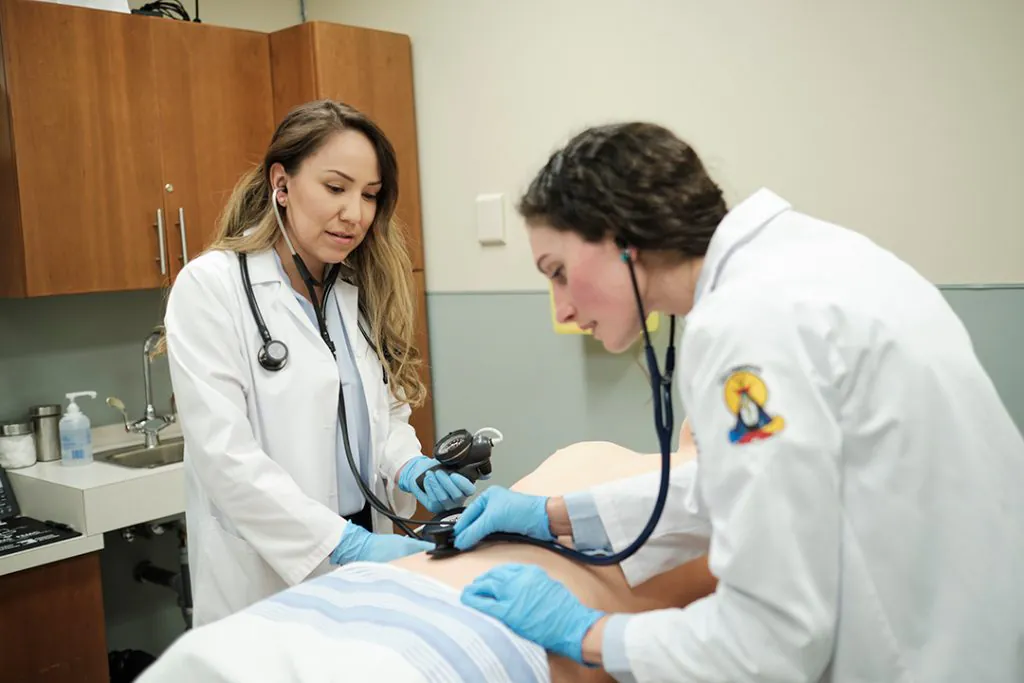
Founded in 1926, the University of Saskatchewan’s College of Medicine was created to address the need for medical education that would train physicians to service remote populations in the province. The College uses a distributed medical education model offering training in Saskatoon, Regina, and other parts of the province. With a focus on rural medicine, students have opportunities to train in remote areas where healthcare services are scarce. Indigenous health is also integrated throughout the curriculum to ensure future physicians are well-equipped to handle specific health issues facing Indigenous communities.
What You’ll Learn
The four-year MD program allows students to complete parts of their clinical training in various rural and remote communities across Saskatchewan. Students also complete their early training at major hospitals throughout the province.
Post-graduate medical training: The College offers a variety of residency programs with many of them offering specialized training for rural and northern healthcare. The program duration is typically two to seven years depending on specialty.
Average MCAT Score: 507
CaRMS Match Rate: 93%
What Sets the Medical School Apart: The College of Medicine has become a research leader in areas such as Indigenous health, rural and remote healthcare, neuroscience, infectious diseases, and community health. Its distributed medical education model aims to enhance the overall educational experience by providing exposure to diverse patient populations, healthcare systems and medical practices. Students get clinical experience across a variety of clinical settings, including urban hospitals, rural healthcare centers and remote communities.
Locations
Saskatoon and Regina, Saskatchewan
Memorial University

Memorial University is one of Canada’s leaders in rural medicine and underserved communities, including Indigenous health. The smaller size of the Faculty of Medicine allows for small group teaching and personalized learning. An integrated approach to the field of medicine is encouraged by a non-departmental administration system based on three divisions: Population Health and Applied Health Sciences, BioMedical Sciences, and the Clinical Sciences.
What You’ll Learn
The four-year Undergraduate Medical Education (UGME) program at Memorial University includes a wide range of teaching methodologies and small group teaching opportunities to allow for a more tailored and personalized learning environment. The program provides clinical learning experiences in community and rural settings and facilitates learning through patient contact in the very early stages of their medical training.
The faculty also offers a wide variety of residencies and fellowships through its Post-Graduate Medical Education program, from family medicine to numerous specialities and subspecialties. Residency programs, especially in family medicine, have a strong focus on rural medical training.
Average MCAT Score: 506
CaRMS Match Rate: 95%
What Sets the Medical School Apart: Memorial’s Faculty of Medicine is known for its focus on training physicians to serve in rural, remote and underserved communities via rural-based rotations. Along with rural medicine, it is lauded for research opportunities related to ocean-related health issues, including studies on cold-water immersion, hypothermia, and the impact of marine environments on mental health.
Locations
St. John's, Newfoundland
Université Laval

As a French-speaking university, Université Laval’s Faculty of Medicine offers medical courses in French primarily, with some English content for international collaborations and research. In 1971, it was the first university in Quebec to offer a medical PhD program, allowing students to focus more heavily on research and specialization. Today it is also focused on training physicians to serve in rural and under-serviced areas in Quebec and beyond.
What You’ll Learn
For students who don’t have a science background or need additional preparation, Laval offers a premedical year (Premédicine) before the official four-year MD program begins. The focus is on foundational courses such as biology, chemistry etc.
Throughout the MD program, students engage in problem-based learning via case studies and group discussions and get hands-on experience through clinical rotations. Upon completion of their MD, students must partake in residency training to get licensed. There are more than 50 residency programs available.
Average MCAT Score: Not required
CaRMS Match Rate: 91%
What Sets the Medical School Apart: The faculty has become a leader in research and innovation in areas such as neuroscience, oncology and public health. A key area of innovation is neuroimaging and advanced brain mapping techniques that can help identify biomarkers for early detection and more targeted treatment of neurological diseases. Laval also houses state-of-the-art clinical simulation centers to train students prior to dealing with live patients, using virtual and augmented reality. Virtual surgical simulators, for example, allow students to practise procedures virtually before attempting them on actual patients.
Locations
Quebec City, Quebec
Université de Sherbrooke

Founded in 1966, the Université de Sherbrooke’s Faculty of Medicine and Health Sciences is fairly new compared to its counterparts across Canada but has quickly earned a reputation for being able to optimally prepare students to work in rural and underserved areas. It offers medical education in French, serving the healthcare needs of Quebec and other Francophone regions.
What You’ll Learn
The four-year MD program is provided in French and uses problem-based learning instead of traditional lectures. Clinical training begins in the first year, with students participating in clinical scenarios in hospitals and community health centres. Students can complete parts of their clinical training at any of the faculty’s three campuses, and there are opportunities for rotations in rural healthcare facilities.
The faculty offers Residency programs (typically 2-7 years) across a variety of specialties including internal medicine, surgery, laboratory research, and many more disciplines.
Average MCAT Score: Not Required
CaRMS Match Rate: 92%
What Sets the Medical School Apart: Université de Sherbrooke was one of the first medical schools in Canada to implement problem-based learning, which emphasizes small-group, student-driven study. Offering a French-only curriculum across three campuses, the faculty of medicine provides flexible options for students while expanding access to clinical training across different regions of Quebec. The faculty has several programs dedicated to the study of aging, and it is recognized for its multidisciplinary approach to geriatric care and the promotion of healthy aging.
Locations
Sherbrooke, Montreal, and Saquenay, Quebec
Northern Ontario School of Medicine (NOSM) University

Established in 2005, Northern Ontario School of Medicine (NOSM) is focused on addressing the healthcare needs of Northern Ontario’s diverse and underserved populations. The curriculum is designed to prepare new physicians to work effectively in the healthcare environments of Northern Ontario, which may include Indigenous communities and rural populations.
What You’ll Learn
The curriculum for the four-year Undergraduate Medical Education (UME) program is organized around six themes that connect learning and assessment into an integrated curriculum including Patient-Centred Care, Social Accountability and Community Service, Clinical Skills and Practice, Population Health and Social Determinants of Health, Medical and Clinical Knowledge, Personal and Professional Development. Students engage in a combination of small and large group learning, practical and lab learning, and significant community-based experiences, combining clinical, medical and human sciences.
Post-Graduate Medical Education training is offered in a variety of specialties including the Family Medicine Residency Program and the Family Medicine PGY3 Enhanced Skills Programs, for those who want to provide more specialized care in the context of family medicine.
Average MCAT Score: Not required
CaRMS Match Rate: 95%
What Sets the Medical School Apart: NOSM emphasizes medical practice in Northern Ontario. It also integrates Indigenous health issues into its curriculum and actively collaborates with Indigenous communities to improve healthcare outcomes. All students get first-year placement in Integrated Community Experience (ICE), a mandatory four-week placement in a First Nation community, a Métis organization, or an Indigenous health organization in Northern Ontario. NOSM has partnerships with more than 500 organizations in 90+ communities in Northern Ontario. It also has partnerships with Lakehead University and Laurentian University to support interdisciplinary education and research initiatives.
Locations
Sudbury and Thunder Bay, Ontario
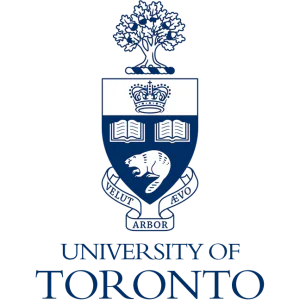
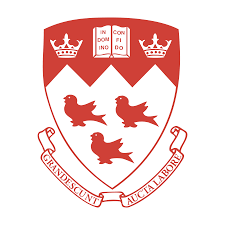
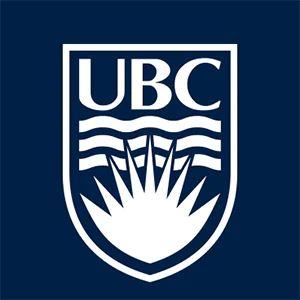
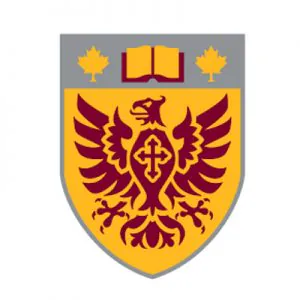

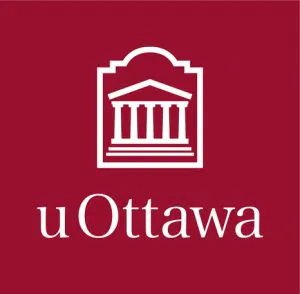
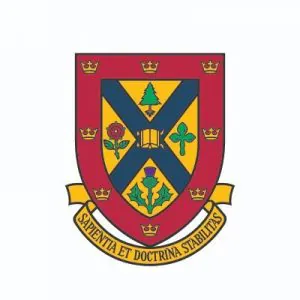
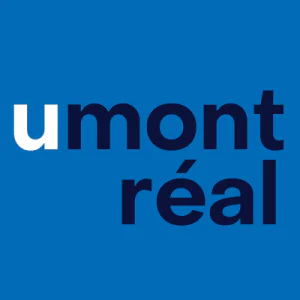

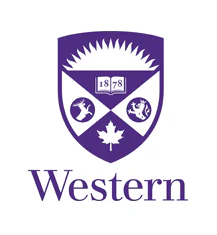
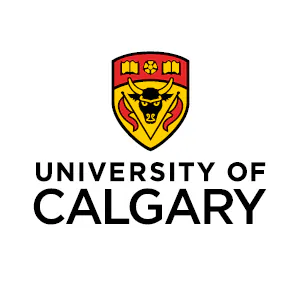


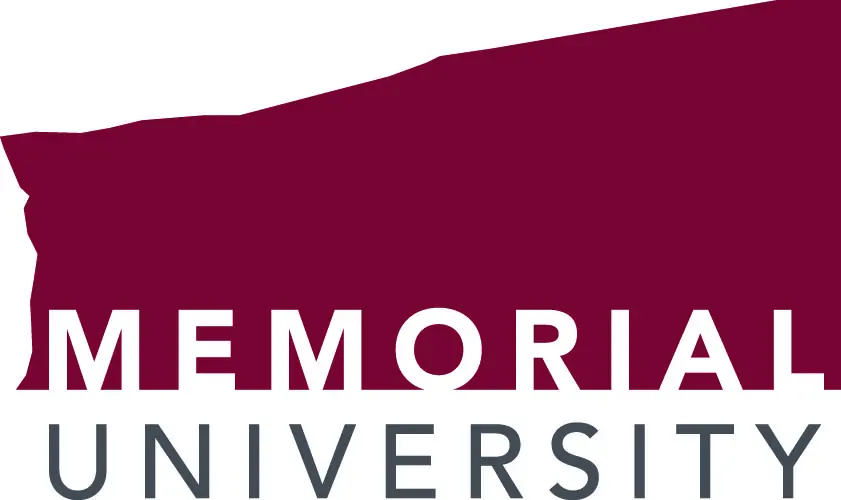
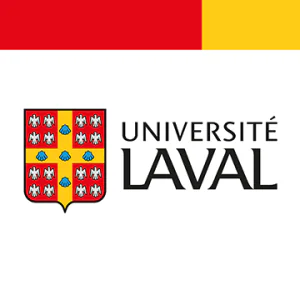

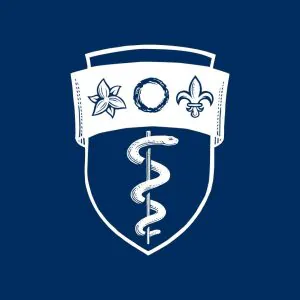
I graduated from med school in the early 80s
Once starting residency programs I found “excellence in knowledge and performance” did not correlate with the medical school of graduation. All the accredited programs in Canada are good. It is the individual dedication to excellence that counts
The goal is to be accepted to any med school in Canada and spend as little money as possible. The location of a residency program may be very important, esp subspecialties. So save your money for subspecialty training . If in US is $$$$